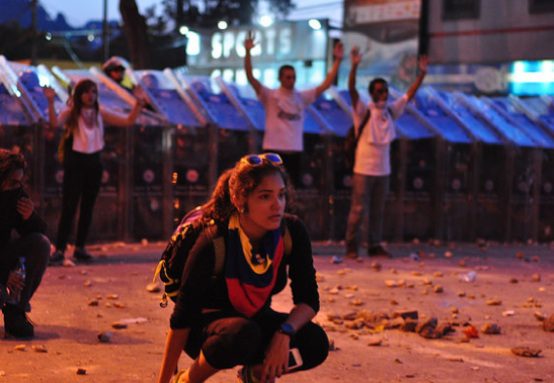Venezuela and Our Stupid Obsession with U.S. ‘Leadership’

Another unwelcome side-effect of believing that the U.S. has the responsibility to “police” the world is a tendency to think that other countries’ problems stem from a lack of “American leadership.” Jackson Diehl offers the latest example of this error:
Still, Venezuela also tells a story of the eclipse of American leadership. For at least the past 100 years, the United States’ conception of its international mission included a determination not to allow another state in the Western hemisphere to fail.
Considering that the U.S. has toppled governments in invasions, supported coups, or fueled civil wars in many of these countries, that is a questionable interpretation of what U.S. policy in our hemisphere has been for the past century. Regardless, Venezuela’s awful descent into ruin under Chavez and Maduro is not something that could have realistically been averted with more U.S. “leadership.” When the U.S. signaled support for the attempted coup against Chavez in 2002, it made a costly error that has haunted U.S. policy towards Venezuela ever since.
It is not accurate to say that the U.S. has consistently tried to “avoid the faintest hint of meddling” in Venezuela since the Clinton administration. It’s true that the U.S. hasn’t used the heavy-handed coercive measures that many hawks have been demanding for years, but that hasn’t stopped the government from making serious blunders, as the Obama administration did when it declared Venezuela an “extraordinary threat” to national security in order to impose targeted sanctions on some members of their government. That blunder gave Maudro a much-needed boost at the time, and there is every reason to suppose that more aggressive meddling would have had a similarly counterproductive effect. Let’s be clear that this is what a demand for more “leadership” on Venezuela means in practice: more interference and more efforts to “shape” their politics according to our design.
Diehl complains that there were “no serious economic sanctions,” as if imposing additional economic burdens on the population would have improved the conditions inside the country. If the U.S. had imposed “serious economic sanctions,” it would have harmed the civilian population while providing the regime with an easy excuse for the country’s economic woes. Sanctions would have deepened the population’s suffering and given Venezuela’s government an alibi for it. If that is what paying attention to Venezuela entails, it is better if Washington “looks away.”
The U.S. usually can’t remedy the internal political problems of other countries, and when it tries it makes a mess of things more often than not. The U.S. should be willing to help its neighbors in our hemisphere when we can be reasonably sure that our help is wanted and constructive, but most of the time it is neither of those things. If we haven’t learned that after the last century of harmful meddling, I don’t know when we will.
Comments